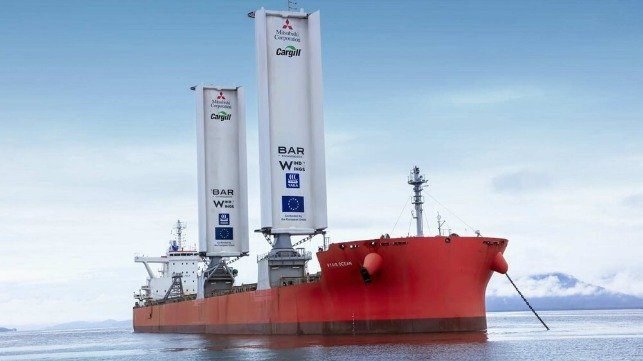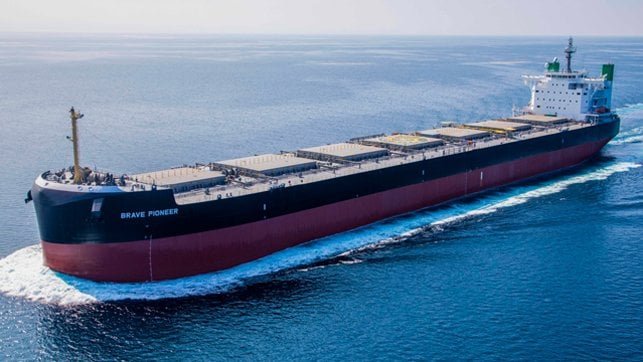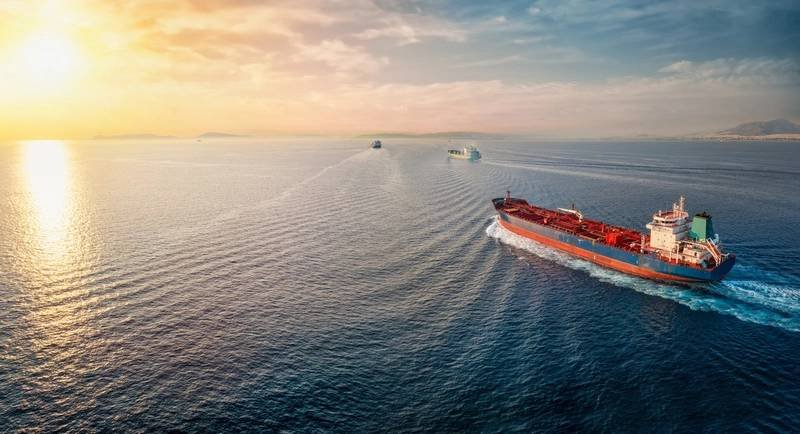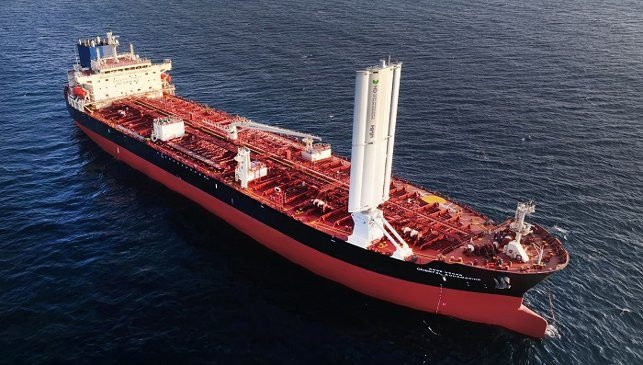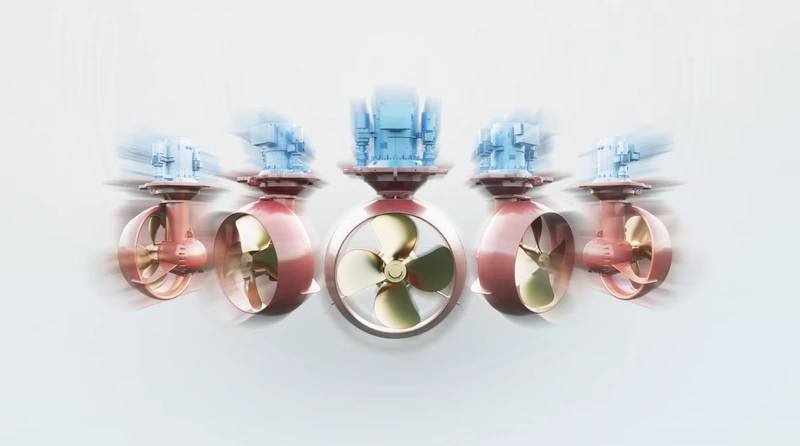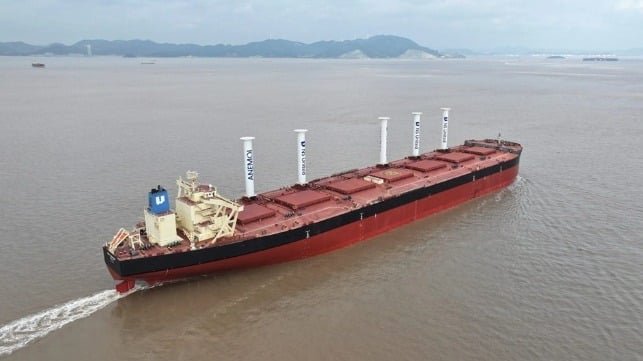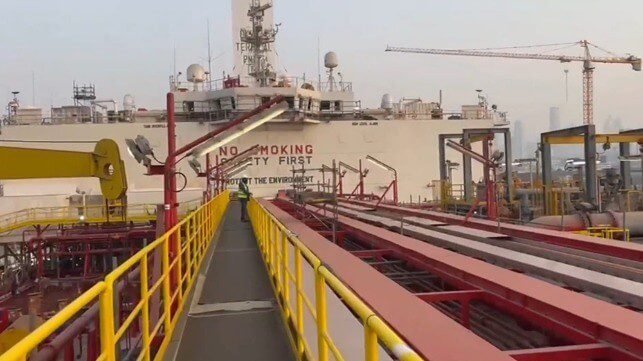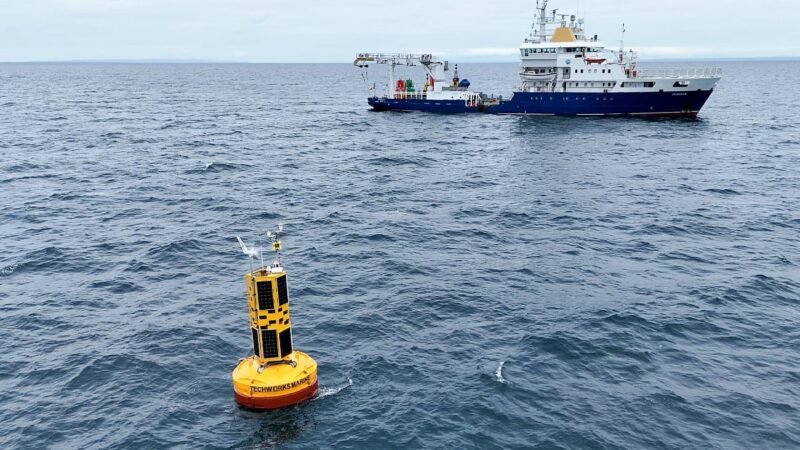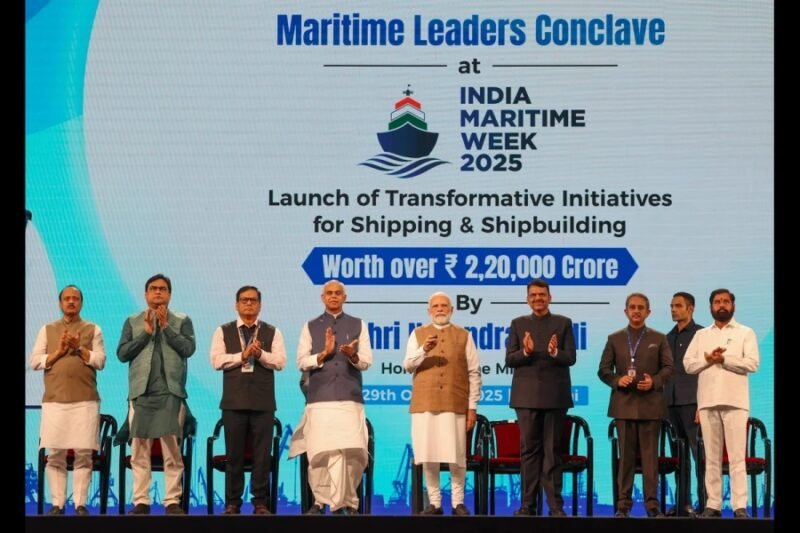Cargill Ocean Transportation has reported positive results from the first six months of testing wind-assisted propulsion on a Kamsarmax bulker. The data collected from the Pyxis Ocean will be used to potentially scale up the technology across the fleet and industry. The vessel, equipped with two 150-foot rigid sails, has shown promising fuel savings and emissions reductions during its voyages across different oceans and weather conditions.
The partnership between Cargill and BAR Technologies began in 2019 to develop the wind technology, with the first installation completed in August 2023. The sails are controlled by a touch panel on the bridge and automatically adjust to optimal configurations based on wind measurements. The technology has shown a 14 percent fuel savings on average and up to 37 percent during optimal sailing conditions.
The success of the Pyxis Ocean’s voyages has not only demonstrated the effectiveness of wind-assisted propulsion but also highlighted logistical challenges in the global maritime system. Cargill and BAR Technologies are working towards integrating Wind Assisted Propulsion technology on a wider scale, with plans to further optimize the design and performance of the sails. In addition to wind-assisted propulsion, Cargill is exploring other decarbonization initiatives such as methanol-fueled carriers and electric pusher tugs.


